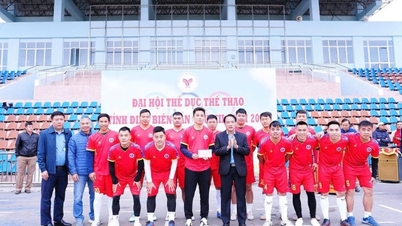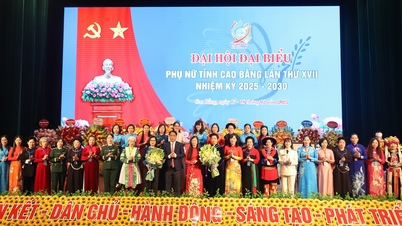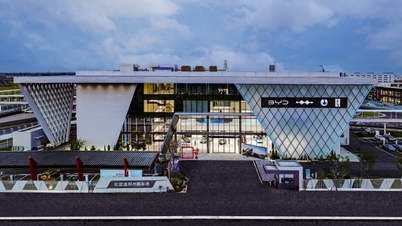
To adapt to development trends while ensuring quality and effectiveness in training, vocal music teaching is facing the need for innovation and modernization through the application of technology and its harmonious integration with the specific pedagogical foundations of the subject to support the teaching process.
General development trends
In the process of organizing vocal music instruction, training institutions can apply technologies in digitizing materials, compiling lectures and teaching content. Initially, they can digitize many documents and put them into an electronic library for research and teaching purposes.
At a higher level, many institutions have effectively leveraged digital opportunities in searching for digital music online, utilizing video , audio, and image resources to assist students in their lessons. They have promptly adapted to new technologies, incorporating them into their lesson planning, particularly in the styles of light music or musical theater.
Today, instructors can easily search for, access, and purchase musical scores online quickly. They can also find the same work in various audio and video versions by many different artists around the world .
Lecturers can also use music notation and composition software, as well as video editing software, to create video lectures and upload them to cloud-based platforms.
This will enrich the lectures and keep the teaching content constantly updated. On the other hand, it allows learners to listen to and review the material anytime, anywhere, ensuring that learning is not interrupted by time and location factors, contributing to improved effectiveness and quality in vocal training.
Currently, there are many tools available to help instructors create their own accompaniment for practice, such as Band-in-a-box, iReal Pro, or Jamzone software, which allows learners to purchase sheet music and actively cut out vocal parts or reduce the volume of instruments in the accompaniment. They have complete control over creating products that reflect their personal style.
Additionally, tools like Flock, JamKazam, or JackStrip allow for online singing classes while simultaneously enabling remote choir or group performances.
With new technology, singing together online is no longer limited by latency, just like singing live. Using a laboratory to analyze sound samples, and then evaluating and comparing the sound patterns of different singers, helps learners improve their listening skills and correct their own sound patterns.
Recently, some lecturers in the Vocal Music Department of the Military University of Culture and Arts have been using modern technology to support the teaching process, such as teaching theory and vocal techniques using presentation software, guiding students in vocal exercises with computers, and practicing singing with electronic accompaniment, especially with light music genres.
In addition, by assigning homework and requiring students to use recording and video software to complete previous lesson reviews, students become familiar with a professional working environment and hone their recording, listening, and vocal skills, as well as microphone handling skills.
At the same time, this allows instructors and examination boards to evaluate teaching results by recording exam papers, storing them as a digital learning resource repository, and using the products for promotion and even for future review.
Opportunities and challenges
In reality, educational institutions that effectively embrace and apply technology will achieve significant results in student recruitment, training, accessibility, and helping learners develop professional skills and find suitable paths within the overall development of society.
One of the biggest advantages for vocal students today is that they can find a wealth of useful information to support their learning process simply by accessing the internet and entering relevant keywords.
Notably, this information comes from diverse musical backgrounds, which can help learners access, absorb, study, research, and apply new knowledge to develop their abilities. Students can even connect, interact, and collaborate with organizations and individuals working in the field of vocal music worldwide if they have good foreign language skills.
Alongside the opportunities mentioned above, we also see many challenges and difficulties facing singers today. These include limitations in the abilities, skills, and qualifications of each individual, especially in the field of information technology.
Therefore, the process of participating in digital transformation has been facing considerable difficulties. Notably, a segment of young singers, when accessing the internet, lack selectivity and chase after vulgar tastes, leading to the production of superficial, shallow musical products, not to mention products that are inappropriate for the culture and lifestyle.
More worryingly, these websites and harmful information have had a negative impact on tastes, orientations, and lifestyles, making learners more susceptible to distorted views, thoughts, actions, and learning.
Furthermore, the emergence of numerous intelligent software programs in the field of music has led to a dependence on technology, causing learners to become lazy, chasing trends, failing to explore their own abilities, wanting quick success, and neglecting the essentials.
This is one of the important reasons why many students are passionate about new, commercially driven music genres, and sadly, classical singers—a genre that requires meticulous and persistent training—are gradually losing their place in contemporary music.
Furthermore, some policies and guidelines from relevant ministries and agencies have not adequately focused on finding human resources in the arts in general and vocal music in particular. This has led to numerous difficulties and shortcomings in training.
Meanwhile, the level of lecturers' proficiency in using technology is limited, the quality of teaching has not received sufficient attention, and the overall quality remains low. A segment of staff has not met the requirements of innovation, leading to a lag behind in overall development.
Implementing digital transformation in vocal music education requires a radical shift in the methods of operation, management, and organization of training.
Along with the collective transformation, each individual must constantly strive to research and acquire information technology, improve their foreign language skills to keep pace with societal development, and at the same time successfully fulfill their professional duties.
Source



































































































Comment (0)